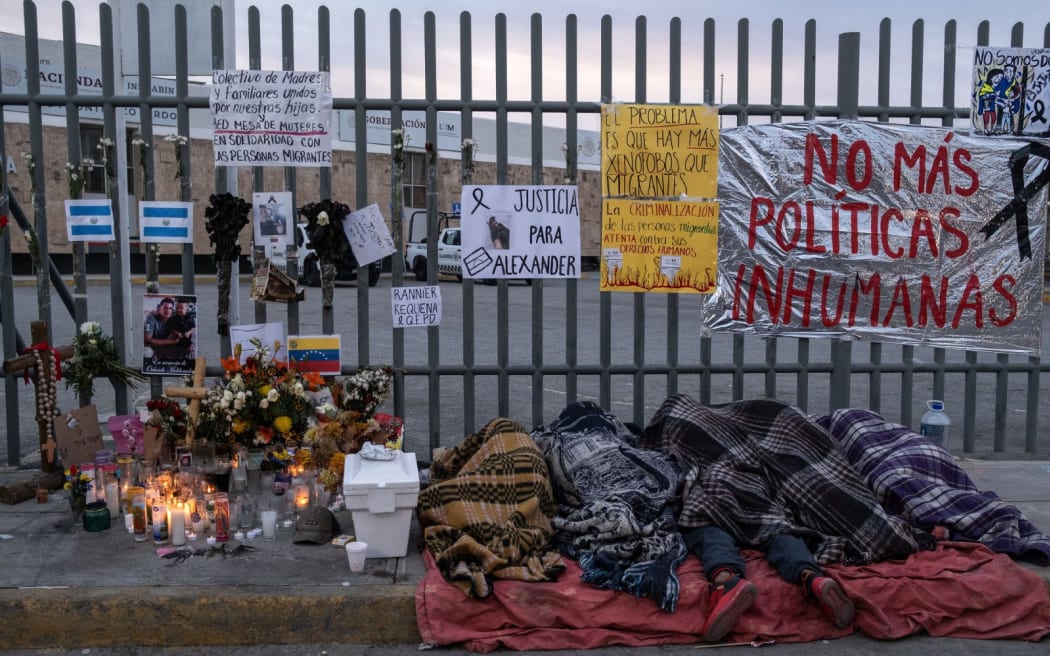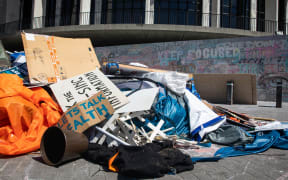By Antony Funnell for ABC's Future Tense podcast

Fear and anger abound - in our politics, in our social discourse, and in our expectations for the future. Photo: 123rf
If it feels like the world is in turmoil at the moment, that is because it is.
Fear and anger abound - in our politics, in our social discourse, and in our expectations for the future.
The finger of blame can be pointed at the usual suspects: Dictators, populists, malcontents and online trolls.
But that is not the whole story.
Social researchers warn that fear and anger have been monetised, the result of deliberate manipulation by commercial and political interests.
Yet experts warn that the antidote for our current malaise is not simply to suppress our emotional extremes. In fact, both fear and anger can help positive social change by fostering a thirst for justice and even revolution.
Instead they say what is needed is a better public understanding of the role these emotions play in our lives, and a clearer appreciation that when emotions are manipulated, even good intentions can have disastrous consequences.
When good fear goes bad
Historian and author Robert Peckham describes fear as the flip side of hope. Hope and fear, he says, are "braided" together.
"Fear sharpens the mind, which is why fear is used in campaigns, whether it's public health, whether it's to change people's attitude to things like climate change," he tells ABC RN's Future Tense.
Peckham argues that when societies fear losing their values and their way of life to an outside threat, that fear can steel their resolve, as happened in the fight against fascism in the mid-20th century.
However, he cites the long paranoia of the Cold War as an example when the well-intentioned deployment of fear went terribly wrong.
"When aspirational elements in politics become overtaken by fear, then it poses a challenge," he says.
"After the second World War and the horrors that the world experienced, democratic countries became defensive. In other words, they saw fear as an important tool for making sure that these kinds of perversions never happened again.
"But in the process of doing that, fear actually became too important as a component. And rather than being a sort of defensive mechanism, it started to eclipse the very values that it was supposed to be protecting."
This helps explain why democratic countries have engaged in many dubious moral campaigns over the many decades since World War II, like the US-led invasion of Iraq in 2003 and the propping up of brutal right-wing dictatorships across the globe.

Fear is a prime motivator in politics. Photo: AFP
Overusing fear tactics
Peckham talks of societies and communities becoming "enculturated" in fear. But he says the overuse of fear's motivational capacity can lead to disinterest and distrust.
"I think we saw that perhaps during Covid that too much fear creates apathy. People shrug their shoulders and say, 'why bother?'" he says
Noel Castree believes the issue is partly a problem of language.
Castree studies the political economy of environmental change. He says the growing fear-based discourse around climate change, for example, and the use of fear-laden expressions and words often backfires on those who deploy them.
"When someone like [UN Secretary-General] António Guterres uses the term 'global boiling' the problem is a lot of people in their daily lives are not experiencing a climate crisis, they don't experience excessive heat, they don't have wildfires on their doorstep. They just switch off," he says.
Another problem is that many expressions of doom used by well-meaning climate activists are "future-facing" and that increases the difficulty most people have in relating to them.
"They're saying if we don't do something about this problem now it's going to be significantly worse in 10, 20 or 50 years," he says.
"And, of course, the difficulty for people today is empathising or imaginatively trying to situate themselves in the future ... It's very, very difficult."

Immigration and other issues tend to draw fearful responses. Photo: GUILLERMO ARIAS / AFP
Mis-leading with fear
While we tend to equate fear-based leadership with totalitarianism or populism, there are many instances in democratic countries where politics is coloured by the use of fear as a blunt tool of coercion.
Think about the recent Robodebt scandal and the discourse around "illegal" immigration.
Fear has also been on the rise in corporate and organisational management, according to leadership expert and author Margot Faraci.
Faraci recently surveyed 2,500 emerging leaders across the US, the UK and Australia.
She found that more than one third of them admitted they led their organisations with fear.
"Leaders either micromanage or avoid stepping into difficulty," she says.
This approach impacts the health and wellbeing of employees and it can ultimately corrode an organisation's bottom line, she says.
Her estimates show that fear-based leadership could be costing the Australian economy billions in productivity.
"When fear is pervasive in a system - and it's pervasive in all of our systems - what that means is that we lose dynamism, we lose innovation, we have high talent churn, which is expensive," she says.
Managers can also be adversely impacted.
"About half of the people who've identified as leading with fear actually struggle with decision fatigue, because they're just doing too much out of fear of getting it wrong," she says.
"About 40 percent [of these leaders] witness declines in team morale [and] about half are unhappy with their jobs. So, this isn't working for fearful leaders either, let alone their direct reports."
The rise of 'angernomics'
It's hard to fully understand the way fear shapes our world without addressing its relationship to anger.
As a tool of coercion, fear can only take you so far, but it sets the grounds for anger, and for the "othering" of those we either don't like or disagree with, Peckham says.
"Anger, fear, hatred are certainly very important components of what happens when fear begins to disperse through a society."
And anger is important for those who profit from fear because anger generates action.
"Anger happens to be one of the emotions that makes us act quickly, and sometimes short-circuits what would [possibly] otherwise be a more systematic, deliberative and slow decision process," says Harvard psychologist Jennifer Lerner.
And she says that's its alluring for any individual or group intent on manipulating opinion, because people are more vulnerable when they're in an angered state.
"When we're angry, we don't pay attention to the details of complex messages," says Lerner.
"We tend to find simple messages more convincing.
"It turns out that the more one person expresses anger, the more others express anger, and then it becomes a kind of spiral where the anger is ratcheted up and up."
This sounds a lot like the situation many bemoan online when social media platforms seemingly descend into ranting and abuse.
According to Erika Ferszt, the founder and lead consultant at US-based Scintillate Brand Consulting, it's important to realise that a great deal of the anger we find when perusing our devices is not organic, it is engineered - for profit.
Provoking anger is rapidly becoming the standard for many online operations, she says.
"There are different ways that media monetises our emotions, but this is the fastest and most effective," Ferszt says.
"For the majority of companies... it's almost a primary guaranteed tactic for marketing."
This is why she calls it "outrage marketing" or "cultivated controversy".
It works because in our algorithmically driven culture the popularity of any given content is no longer driven by the number of eyeballs that see it, but by the level of engagement it generates.
"The human brain is far faster to react and engage when it is angered, as opposed to watching something nice and peaceful," she says.
"So, if I make you angry, you're going to externalise that emotion and whatever I put in front of you, my piece of communication, is going to do better."
But Ferszt believes many people are becoming more aware of the manipulation and are tired of being angry and interacting with angry content.
"I see a lot of people talking about rage exhaustion, [saying] that they can't watch the news anymore, they don't use social media because everything is so bad. So, there are people actively opting out," she says.
So perhaps we are reaching a tipping point where more people realise that we are living in a vicious cycle, where manufactured fear fuels anger and anger in turn blinds us to the recognition that our fear is misplaced.
But Ferszt argues that if we do reach that point, it will not be because of any virtuous change of heart on the part of those who monetise our emotions.
"Unfortunately, [online businesses] are driven by profits and growth," she says.
"That's just the nature of the business system that we have ascribed to."
- ABC






